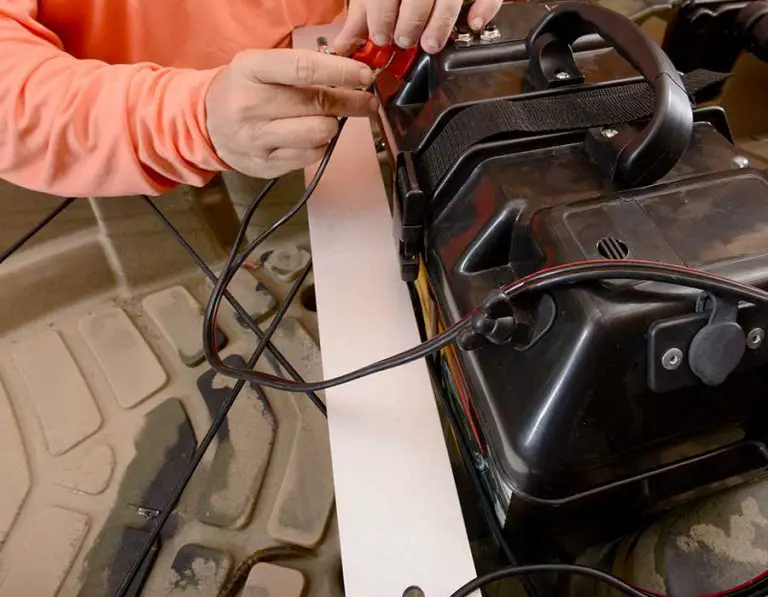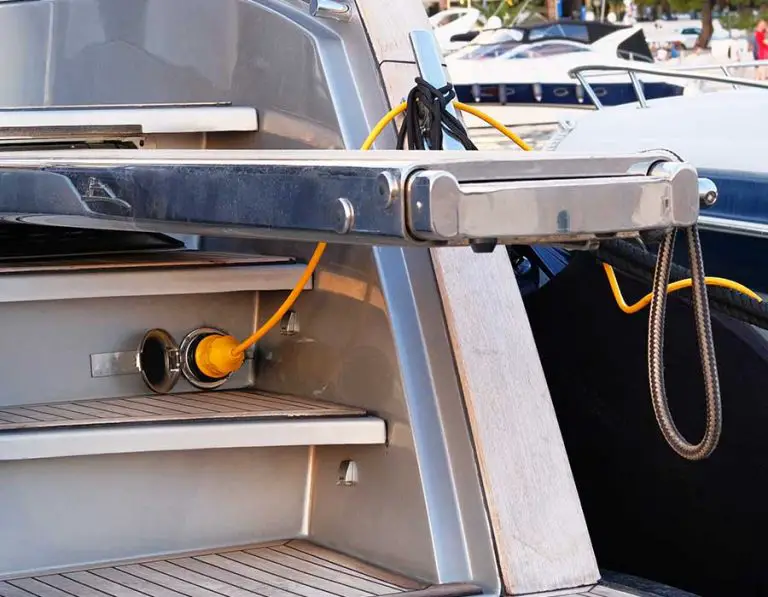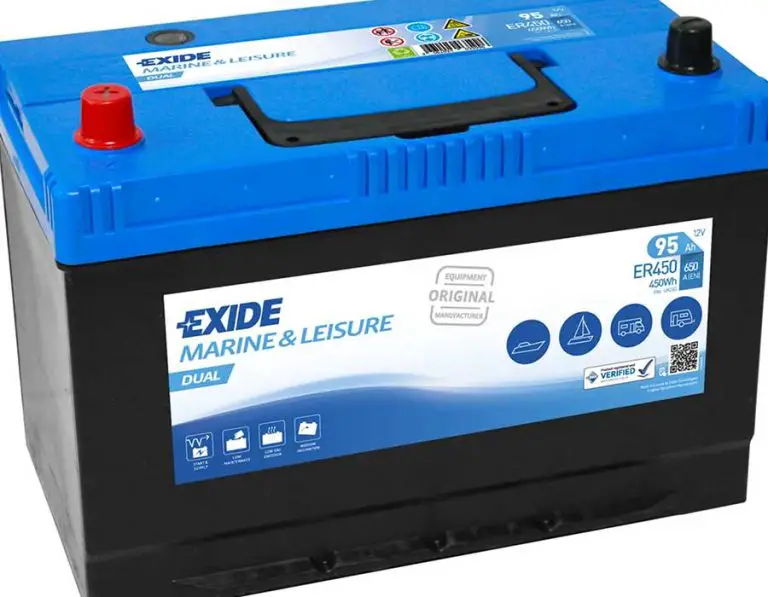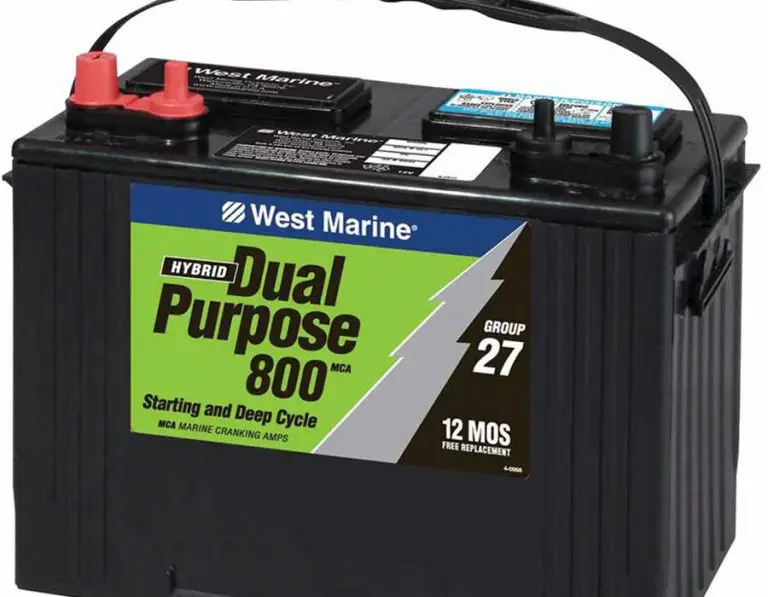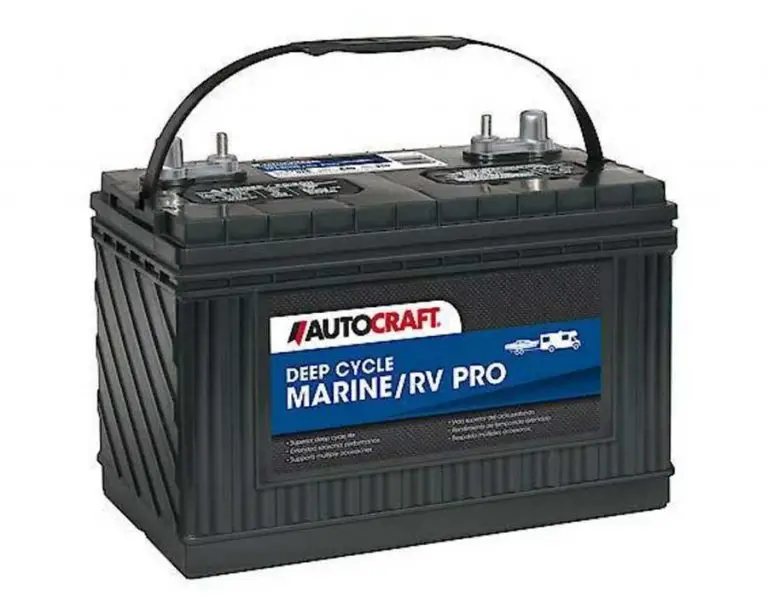Boat Battery Cables Get Hot When Cranking: Solution
Boat battery cables are high-quality, flexible cables designed for these water vehicles. They are used to connect to the boat’s power source, that is, the battery. The cable is designed to resist damage from vibration and contact with water.
For flexibility, they are usually made of polyurethane to adapt to bending when the boat engine is in motion. They can resist oil, fuel, moisture, fire, flame, and most harsh circumstances.
What Are Marine Battery Cables Used For?
Marine cables are used for;
- Electrical wiring of marine vehicles like boats, submarines, ships, trams, and so on
- Wiring of inshore stations or offshore platforms
- To provide lighting for marine facilities
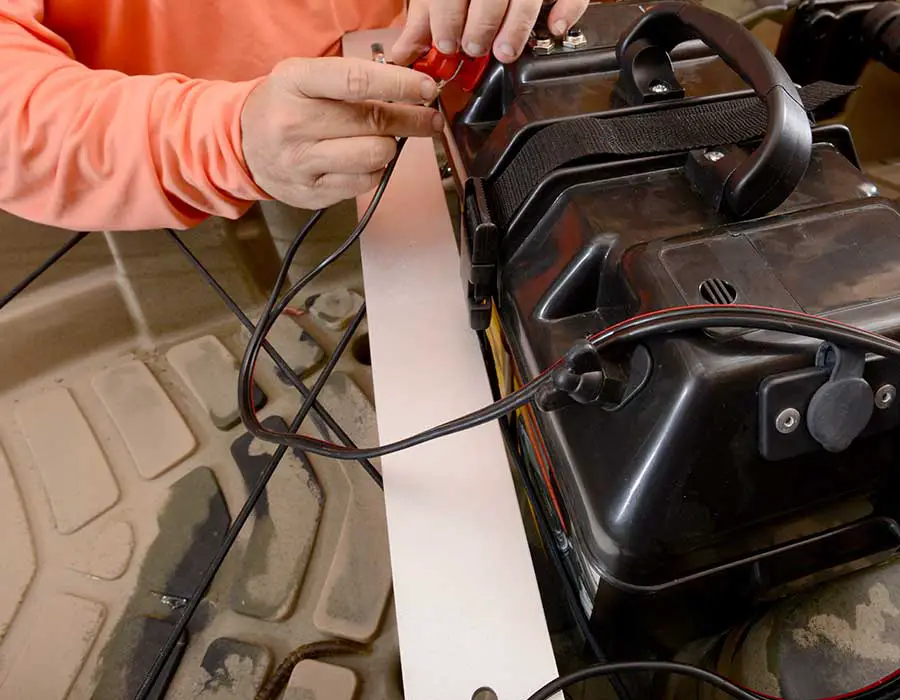
Features Of Boat Battery Cables
The following features make marine cables distinct from normal cables. They are the characteristics that make them more adapted to the marine environment. They include;
- Marine cables are made of tinned copper
- Durable thick PVC covering
- Vibration resistant
- Relatively larger
Tinned Copper Build
The use of tinned copper for marine batteries provides many benefits, the biggest of them being corrosion resistance. Tinning is the process of coating a naked copper wire with a thin layer of tin. This process gives the best of both worlds to the wire, that is, the connectivity of the copper wire and the benefit of the tin coating, which prevents oxidation and solders well. Tinning also strengthens the copper’s natural features, making it more resistant to humidity, high temperatures, and wetness, which is why it is used for marine cables. The tin is a protective covering for the copper wire to block out rust.
What happens if marine cables use bare copper wires? Due to regular contact with moisture and water, the wires will corrode over time and weaken.
Durable Thick PVC Covering And Vibration Resistance
The insulative outer covering on marine cables is Polyvinyl Chloride (PVC) which is thick and durable for its function. It is manufactured in such a pliable way that it makes the cables flexible. Marine batteries need to be flexible because of the life on water bodies and the motion of the waves. Another reason is tight spaces. Ships are designed to accommodate as much as possible, making them compact and tight; hence flexibility is required for wires to maneuver around the tight spaces. Another reason for flexibility enabling covering is the vibrations during motion on the sea and stressors due to the high delivery that comes with its function.
Relatively Larger
Marine battery cables are of the exact specification as other automotive cables are larger. It is thicker, longer, and heavier than an automotive cable of the same specification. For example, a 6 AWG marine cable contains more copper than a 6 AWG automotive cable, making it larger. The more copper, the more the current-carrying capacity. The PVC jacket is also thick, making it appear bulkier but flexible.
Type Of Marine Battery Cables
Marine battery cables can be distinguished according to ‘gauge.’ The basic ones are;
- 6 gauge (AWG)
- 4 gauge (AWG)
- 2 gauge (AWG)
Six Gauge Marine Battery Cable
It is highly flexible, with high endurance levels and resistance to oil, heat, water, abrasion, acids, and the like. The distinct characteristic of this gauge type is the diameter, which is 0.28 inches.
Four Gauge Marine Battery Cable
It is the same as the six gauge battery cable but with a diameter of 0.33 inches. It has the same features, such as corrosion-resistant tin-coating, resistance to acids, humidity, heat, and so on, as the 6 gauge cable.
2 Gauge Marine Battery Cable
It is the same as the 6 gauge and 4 gauge marine battery cable but with a diameter of 0.45 inches.
All the cable types are the same in type, make and function except for the slight differences in diameter.
Why Do Marine Cables Get Hot When Cranking?
There are several reasons why your marine cables get hot, some include;
A Buildup Of Corrosion
Corrosion accumulating on a vehicle battery (marine or otherwise) increases resistance and interferes with the free flow of electric current. This impediment to the flow of electricity can increase the cables’ temperature, making them hot to touch. The corrosion could spread to the battery terminals, which weakens them, and heats the cable. Leaving this condition unattended can make the heat spread to other parts attached to the engine, including the battery itself.
Faulty Wires
If the copper wires in the cables are broken or damaged, it can increase resistance. The mass of copper available will be too small for the amount of current that needs to be passed through the cables. An increase in temperature is imminent when the copper wire is damaged, which can cause the insulating cover to melt. The hotness will run through to the battery terminals. To avoid this getting out of hand, regular inspection of the battery cable will go a long way to detect any faults early on.
Rusting Copper Wires
Copper is a metal susceptible to corrosion; this is why most marine battery cables are made of tinned copper wires. The tin coating prevents the copper from oxidizing into rust. Current flowing through rusted copper wires will cause heat, which will flow from the cable to the battery and heat the terminals. The corrosion gets in contact with the rubber cables, and they begin to degrade over time, exposing the copper wire to even more damage. Corrosion affects the free flow of electrons, which might be why your boat engine is not responding as it should.
Loose Or Poor Connection
A loose connection with a high flow of current causes the wire to overheat. The lead-acid battery terminal could melt as a result of this. Another cause of heating wires is a bad connection. The wire will start to get hot at the point where the connection was poorly made. A sign of a bad connection is when the vehicle’s electrical parts suddenly go off after starting the engine.
Faulty Starter
The engine not turning over is most likely due to a faulty starter. A faulty starter causes the current to flow excessively from the battery. Also, overusing the starter can cause heat in the wires due to too many stars.
How To Fix A Marine Battery Heating During Cranking
- Find out how long the battery has been in use
- Clean out the terminals
- Test for resistance
- Inspect the cables for damage
- Replace the cables
Check The Age
Marine batteries last for up to 4 years, so if you have been using your battery for that long, it is probably faulty due to age. You should prepare to replace it instead of constant repairs until it finally breaks down.
Clean Out The Terminals
The sign of rusting is the buildup of white or bluish-green gunk around the battery terminals. Ensure the terminals are cleaned out as needed, not until they form a large mass. Cleaning corroded terminals is relatively easy. You can do so using manufactured terminal cleaning spray or a DIY mix of baking soda and water. Using a wire brush, scrub in the spray or mixture on the corroded area, and rinse. Allow to dry and coat with petroleum jelly and anti-corrosion spray.
Test For Resistance
A resistance test can help to detect where the problem is coming from. Using a multimeter is used to measure different parameters, including resistance. It could be that the resistance in the negative cable connecting the battery to the engine is faulty, or the positive cable that connects the battery to the switch is damaged.
Inspect The Cables
Cracks and breaks in the wires are a significant cause of cable hotness. Also, when the insulating cover is chipping off or worn out, it exposes the copper wire, making it prone to rusting and high heat. Observe the cables for any deformities, cracks, or wear. If the cable is faulty, you should replace it.
Replace Faulty Cables
If you have done the necessary checks and your cables happen to be the problem, or they have been damaged due to the high temperature from the flow of electrons, it is best to replace them with high-quality new ones.
Tips For Choosing The Right Boat Battery Cable
The main priority to look out for is the size compatibility with its demands. Using an undersized wire is not safe because it would have too much load that it cannot supply. An oversized wire will not supply the current in a proper amount and as needed. The following factors should be checked to determine the compatibility of the wire;
- Current carrying capacity
- Voltage regulation
- Short circuit withstanding capacity
FAQs
Why are marine battery cables better?
Marine battery cables are specially designed to supply the demands of boats and similar vehicles. Their distinct characteristics include flexibility, high conductivity, tinned copper to prevent corrosion, durability, and efficiency.
When should I replace my marine battery cable?
Cables last for a very long time. However, it is common for them to be damaged from the work and movements of the vehicle. Aside from a prolonged use span, you may need to replace your marine battery cables if they are faulty, worn out, or melted due to heat.

